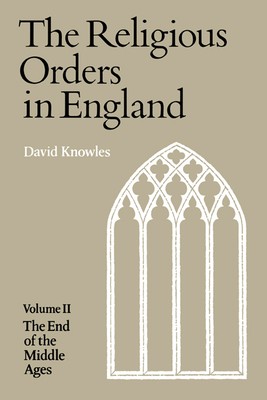
- We will send in 10–14 business days.
- Author: David Knowles
- Publisher: Cambridge University Press
- ISBN-10: 052129567X
- ISBN-13: 9780521295673
- Format: 15.2 x 22.9 x 2.4 cm, minkšti viršeliai
- Language: English
- SAVE -10% with code: EXTRA
Reviews
Description
This book covers a period (1336-1485) neglected by historians, when many features of the modern world were germinating under the surface of medieval institutions: the age of Chaucer, Langland, Bradwardine and Wyclif, of the new Nominalism and the Conciliar Movement. David Knowles devotes part of his book to narrative, and part to analysis. The great abbeys are at their height of outward splendour, we see the building schemes of Ely and Glouster, the impact of the Black Death, and the recovery from it; we see the monks and friars in controversy at Oxford, the attacks of Wyclif and the Lollards, helped by the satire of the poets; the conservative reaction, and the foundations and reforms of Henry V, followed by the Indian summer of the feudal aristocracy.
EXTRA 10 % discount with code: EXTRA
The promotion ends in 23d.10:55:28
The discount code is valid when purchasing from 10 €. Discounts do not stack.
- Author: David Knowles
- Publisher: Cambridge University Press
- ISBN-10: 052129567X
- ISBN-13: 9780521295673
- Format: 15.2 x 22.9 x 2.4 cm, minkšti viršeliai
- Language: English English
This book covers a period (1336-1485) neglected by historians, when many features of the modern world were germinating under the surface of medieval institutions: the age of Chaucer, Langland, Bradwardine and Wyclif, of the new Nominalism and the Conciliar Movement. David Knowles devotes part of his book to narrative, and part to analysis. The great abbeys are at their height of outward splendour, we see the building schemes of Ely and Glouster, the impact of the Black Death, and the recovery from it; we see the monks and friars in controversy at Oxford, the attacks of Wyclif and the Lollards, helped by the satire of the poets; the conservative reaction, and the foundations and reforms of Henry V, followed by the Indian summer of the feudal aristocracy.


Reviews